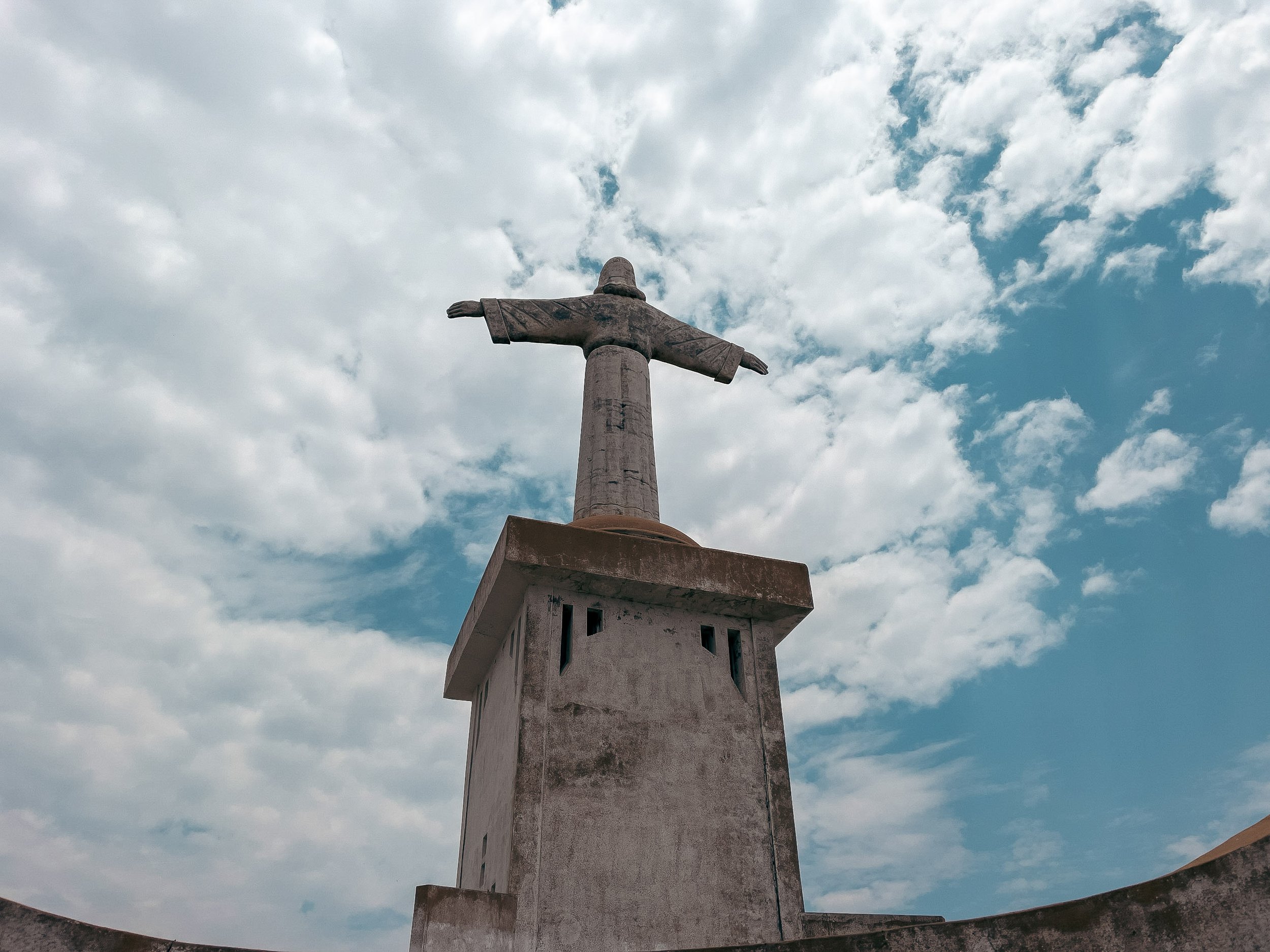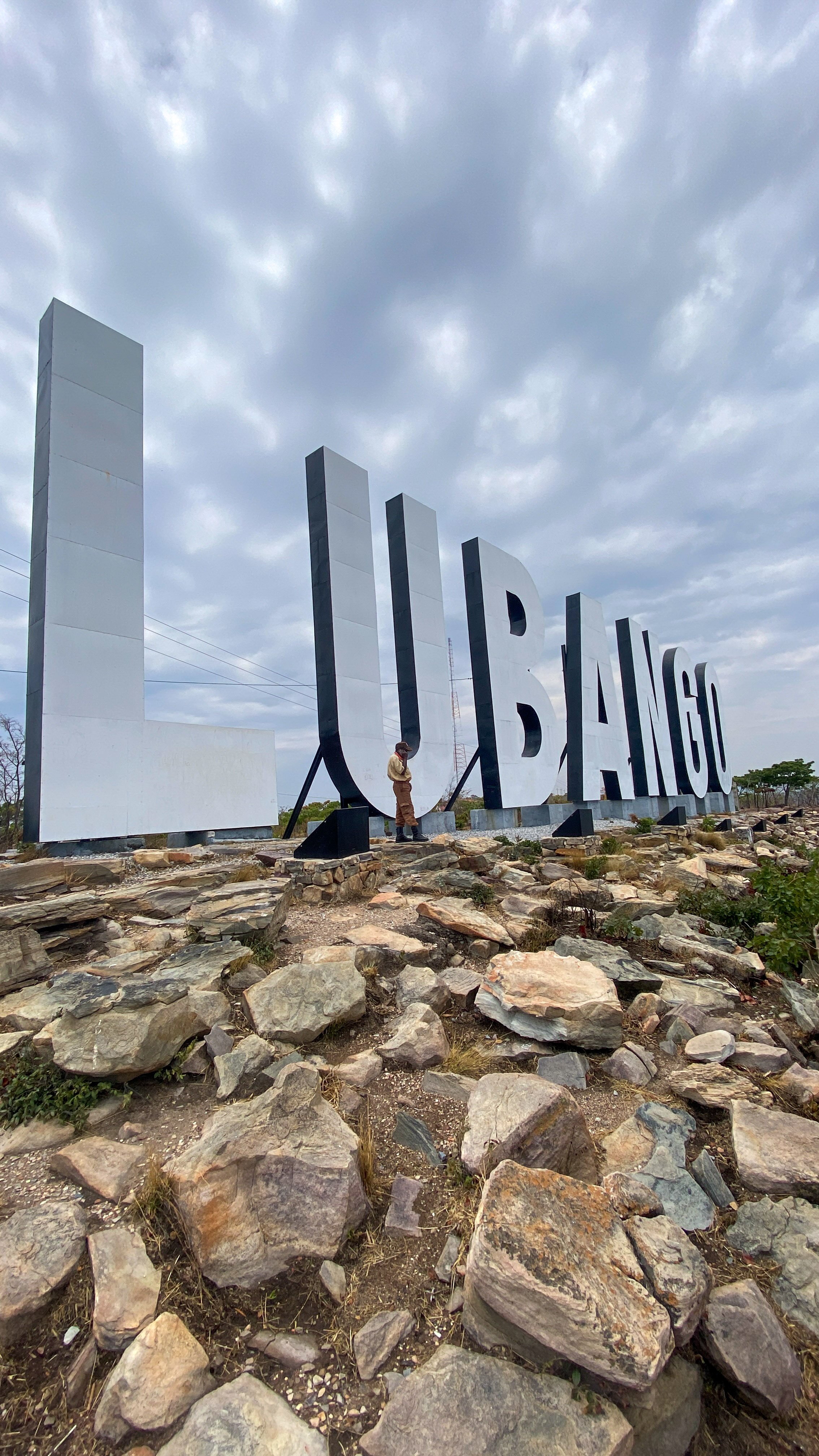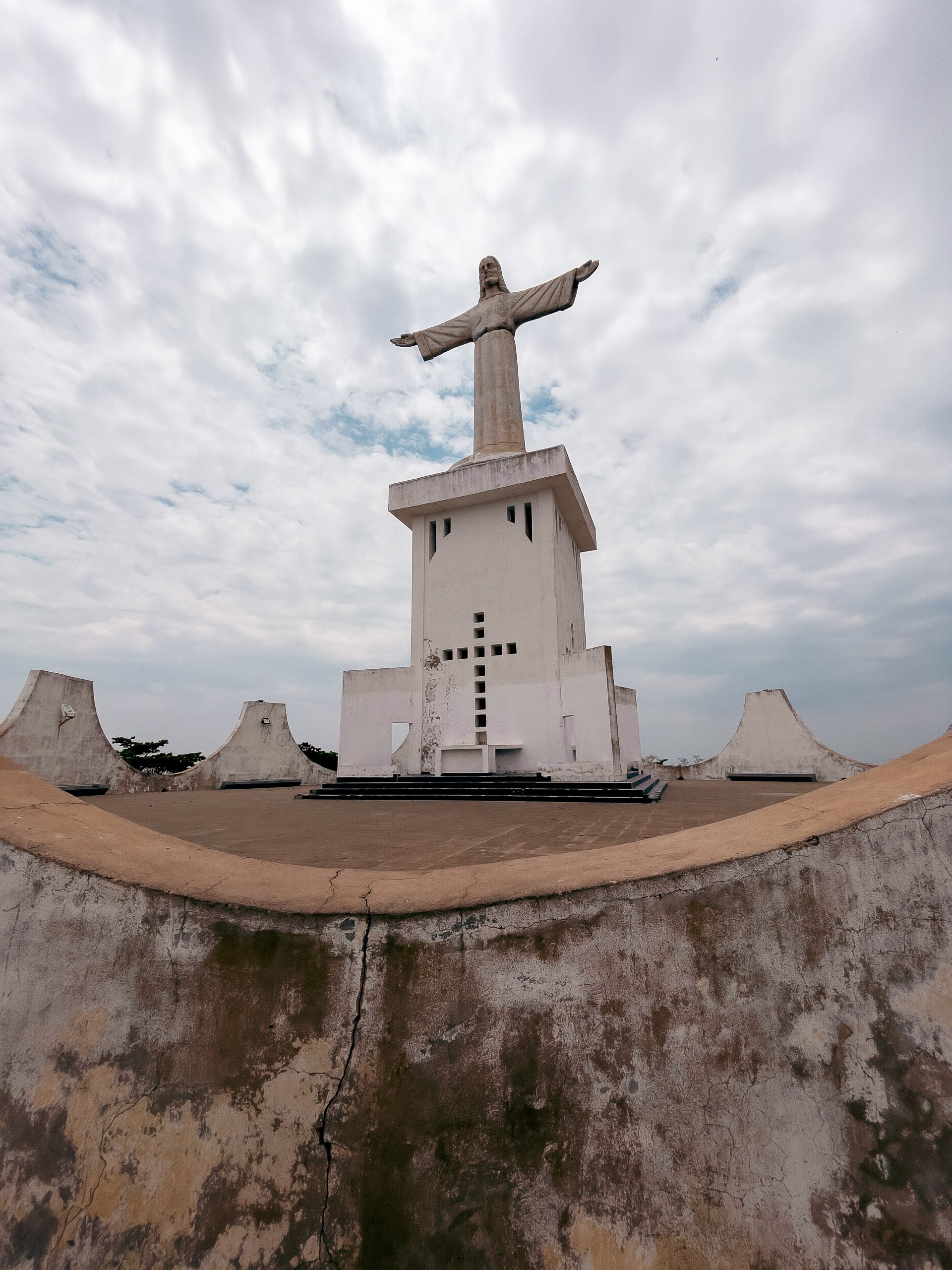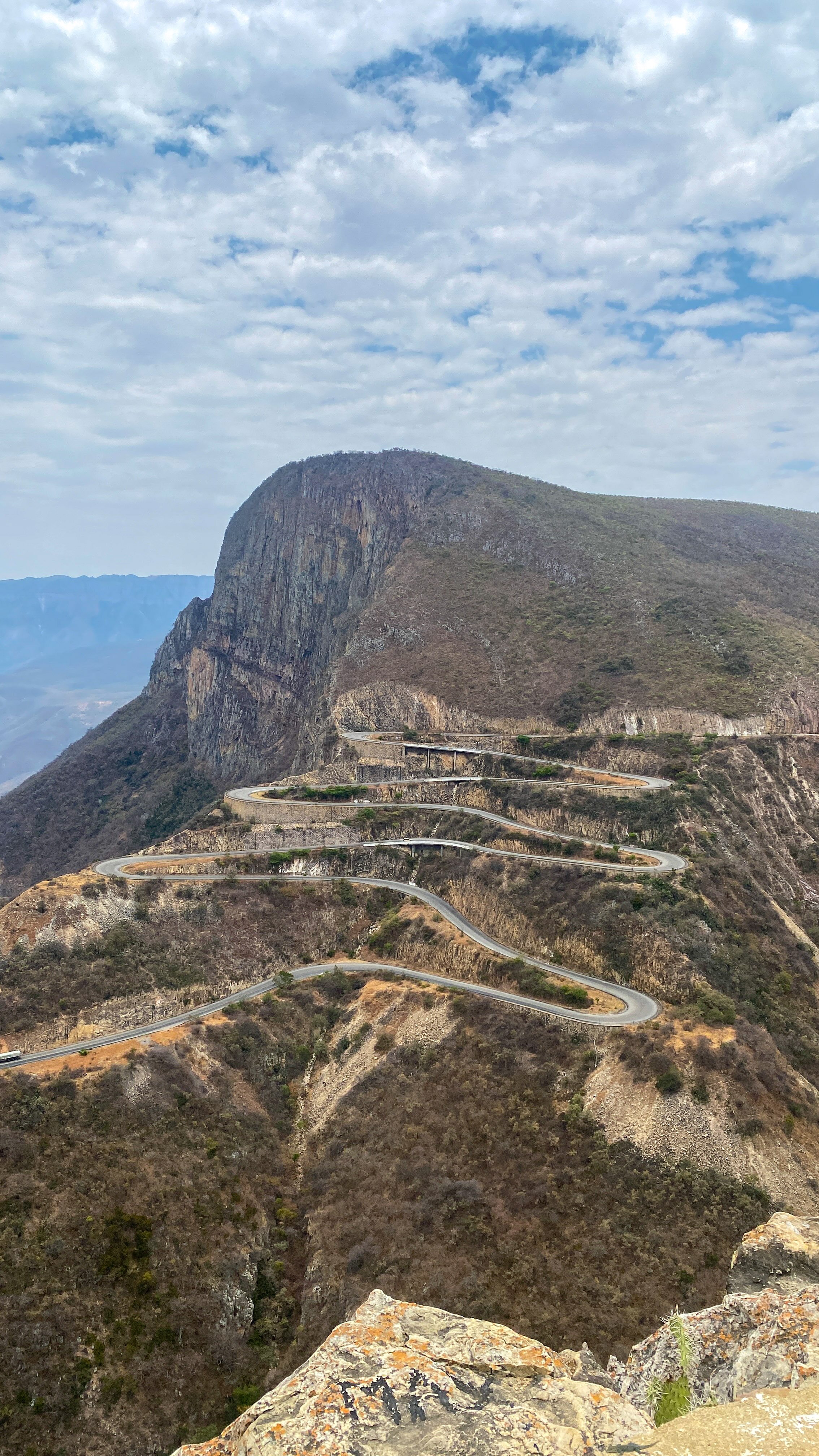The border crossing to Angola was not such a quick experience as our previous couple of immigrations because this country is not a very touristy destination. However, we were surprised at how quickly our online application for the e-visa was approved.
When we reached the border, we definitely stood out with our big car. The border is bustling since Namibians and Angolans do not need a visa to travel to their neighboring country. Because most goods are cheaper in Namibia, many Angolans were carrying big bags of rice or potatoes and other groceries and walked past us across the border. We, on the other hand, were first stopped by a guy who wanted to see our Covid Test, which we did not have… We heard so many different versions of whether it was necessary to bring a test or not that, in the end, we decided to try our luck. Unfortunately, we weren’t lucky, and this guy wanted to see the test results and was very strict about it, even though no one else seemed to need a test to cross here... Furthermore, he didn’t speak English, so we had to ask one of the fixers for help. We usually try to avoid using fixers for border crossings, but this time, we needed help to communicate somehow. We were lucky and found Lukas, a fixer who was quite helpful. He managed to bargain with the Covid-guy; in the end, we could cross without a test. We then went to immigration, where an officer asked us to follow him to his office. He checked our e-visa application and then prepared our physical visas, which took quite some time, but the officer was very friendly and asked many questions about our travels; he seemed very interested. We had to go to the bank to pay for the visa when he was finished. Lukas showed us the way; we practically had to enter Angola and go to the bank while our passports were still with the immigration officer, which seemed very weird, but it was what it was. At the bank, the next surprise waited: we could only pay for the visa in cash (?!), and of course, we did not have Angolan Kwanzas yet. The cashier at the bank was also unable to exchange our US dollars for Kwanza (!!!). Luckily, a client at the counter next to us was happy to help and exchanged some dollars at an excellent exchange rate. So finally, we were able to pay the visa fee and could return to the immigration office to collect our passports. After we let the immigration officer have a look at our car because he was very interested, we could drive to the next counter: customs. The counter was very busy, and we had to wait for more than one hour until it was our turn and we could pay the road tax. We were already prepared to walk again to the bank with our paper when a local guy offered to pay for us using his phone (no cash is allowed at official counters, but they have an Angolan payment system for phones which was ok). We gave the friendly guy the money in cash. There was one last checkpoint before we could enter Angola, and Lukas advised us to bribe the customs officer so he would not search through our whole car before we could leave. We weren’t sure about that advice, and we told him we wanted to see if he was even interested in looking through our vehicle. He wasn’t interested at all, so we could leave the border and enter Angola without bribing the officer.
Besides driving back on the right side of the road, the change to Namibia was quite significant; we immediately felt like being back in East Africa, with many people on the streets selling their vegetables and fruits and bustling roads with goats and cows crossing everywhere. In Namibia, the vibes were more western. We stopped in the first town after the border to buy a local sim card. At the Unitel store, only one lady spoke English and could help us, but she was very friendly and interested. She had not met many tourists, even less those who travel by car. Once we had our sim cards, we got some more money at an ATM since our international cards didn’t seem to work here in the shops; they mostly only accepted an Angolan banking card. It was quite a stretch to Lubango, the first town we wanted to visit, and there were few places of interest on the way. However, it was already early afternoon, so we decided to check out one of the wild camping spots along the way. Beneath a giant Baobab tree, some people have camped before, and everyone seemed to have liked this spot. We drove on a perfect tar road towards Lubango and left the road halfway to reach the camping spot. On the way, we passed some old abandoned military tanks, which were still there from the civil war in Angola, which only ended in 2002. We soon found the Baobab Tree, a lovely spot to spend our first night in Angola. A local farmer greeted us; we offered him something to drink and tried to communicate using Google Translate, which was quite funny. After he left, we cooked dinner and went to bed. The following day we enjoyed a little breakfast while talking about how we had met so many lovely people in Africa. We thought back about how we both were a bit afraid when we first arrived in Africa and how we were a bit overprotective – maybe we should have kept that feeling and been more careful, knowing now what happened shortly after…
We packed up our camp and drove to Lubango, where we first stopped at a restaurant to eat a little lunch. Angola was definitely a more expensive country, which we realized after we had to pay the bill, and it was almost like being back in Switzerland. We would definitely need to cook ourselves a bit more here. We continued and wanted to drive up to Tundavala, a touristy hotspot 20 minutes outside the city. It’s a beautiful cliff with a fantastic view over Angola.
On the way, we quickly stopped at Le Chalet, a restaurant and store owned by Swiss people who sell great cheese. We stocked up on some Gouda, Tilsiter, and even Raclette Cheese before continuing further up to the viewpoint. On the way, we debated whether we wanted to wild camp up there, which many overlanders had done before us, or if we should go back to the city and look for a hotel. When we arrived, we were the only visitors, but two security guards came to the parking lot as soon as we had parked the car. We walked to the viewpoint, and some local Himba kids ran after us and asked for food and money. We gave them some fruits we had with us and went on to take some pictures. By the time we returned to our Defender, some more cars had arrived with mostly local tourists. One of them started talking to us; he spoke English very well, so we asked him if he could ask the security guards if we could camp there. He translated for us and informed us that they said it would not be a problem. However, they told us to sleep in the parking lot, where they could see us, as they would be there all night. We thanked them and were still unsure if we should stay because some dark clouds were slowly coming our way, and we were afraid that a thunderstorm would soon arrive. There were some more hidden viewpoints along the cliffs, so we asked the security guards whether it would be ok to drive along the beautiful offroad trail along the cliffs and check it out. They said it was not a problem and that it was safe up here. We informed them that we would come back later and decided whether we would sleep up here, depending on the weather.
We drove along the gravel road and soon were out of sight from the parking lot. We decided to cook dinner up here and then see whether the thunderstorm would come here or not. If yes, we would drive back to the city again and sleep in a hotel; if it stayed dry, we would sleep in the parking lot next to the security guards. We stepped out of the car, took pictures, and started cooking. It must have been around 20 minutes after we had arrived there when suddenly two guys appeared from behind our car. We didn’t see them coming at all, they were wearing black masks over the head, with two holes for the eyes and one for the mouth. One was holding a knife, the other a beating stick. Of course, we immediately knew what was going on. And there was no one around who could see or hear us. They told us to sit on the floor, or at least that’s what we understood since neither of them spoke English. They kept asking for “Dolares” and wanted to tie our hands, but we told them we would get the money for them. I got up and returned with our wallet and gave them all the Angolan Kwanzas we had, which was quite a bit, because we only just pulled money. I hoped that they would leave, but they didn’t. They kept asking for more money. I remebered the Namibian and US-Dollars we still had and gave them the rest. They started looking through some compartments in the front of the car and found my apple watch and our GoPro, which they also took. They kept asking for more money and wanted to tie us again. One guy started to get very aggressive; he kept yelling “Dolares” and “more,” but we didn’t have more cash. The other guy started to take off my jewelry. Thankfully, I left all my valuable jewelry back at home, and I was so happy I did at that moment. I gave him my bracelet and the rings I was wearing. He probably thought the ring on my ring finger was my wedding ring and didn’t ask for this one, a robber with manners at least... By that time, Tom and I started to get very angry; these guys were taking forever and it was obvious that there was nothing more for them to take. Our phones, we had both thrown behind the driver seats when they were approaching, I’m not sure if they saw it, but I think they were not interested in the phones anyway because, without a code, they are useless. In the meantime, the thunderstorm had arrived; it was very windy, the sky turned black, and it started to rain and even hail. We screamed at them that they had everything and there was nothing more to take. Tom began to stow away our cooking gear, which was still out. I think they were a bit confused and of course still couldn’t understand a word we were saying. We started yelled at them that they should finally leave us alone, and one guy seemed to understand what we were trying to tell them or he just got nervous too. He pulled his aggressive buddy away and they finally backed off and ran in the other direction. We threw everything that was still lying around in the car, jumped in, and drove back to the main road. We didn’t even stop at the parking lot to tell the security guards about what happened; we were terrified and just wanted to get away from that place.
We drove straight to one of the nicer hotels in Lubango, which seemed like a safe place, and asked if they had a room. They did, and the receptionist named Saida was very helpful. We told her what had just happened to us, we were soaking wet and still under shock. She immediately offered to come to the police station after her shift and quickly showed us our room, where we first took a long shower to warm ourselves. We then went to the police station close by together with Saida. She translated for us, and the officers told us we needed to go to the central police station. Since we had left our car at the hotel, they offered to drive us, but the only vehicle available at that moment was the car from the troubleshooter guys. So we had to jump on the back of their car, together with four armed police officers, and they drove us with turned-on sirens to the central police station of the town. We there had to tell the whole story again, and the officer, in the end, asked us to come back the next day. He wanted to drive up to Tundavala with us so we could show and explain to the police how and what exactly happened. It was already after 9 pm when we walked out of the police station and of course, we didn’t feel like going back up there early the following day, but we did what we had to do.
Unfortunately, the next morning, Saida had to work again so she couldn’t join us. We drove to the police station the next day in our car and drove up to Tundavala with two officers. When we returned to the police station, an entire investigation team was waiting for us, and we again had to tell them everything so they could write the official police report. This time, we had to use Google Translate, so I’m pretty sure it’s a bit of a funny report to read if you speak Portuguese, but at least we could communicate. The officers were very friendly and took us seriously, which felt good. It took some more hours but in the early afternoon, we were finally done and could return to the hotel.
At around 8 pm, they called us and asked whether they could stop by to show us the final police report we would need to sign. 4 policemen came to our hotel to show us the report. There were some minor adjustments necessary and they offered to come back the following morning because we told them we were planning to leave Lubango the next day. So on Sunday morning, after the incident, which happened late Friday afternoon, we already had the final police report in our hands - we were very impressed with the Angolan police.
We hit the road again, but we were not very relaxed, to be honest. There was another viewpoint of the city; a smaller version of the Christ the King statue from Rio de Janeiro above Lubango. We drove up there, but everything reminded us a lot of Tundavala, and we barely dared to step out of the car when we arrived at the parking. There was a security guard up there, and we parked right next to him and only quickly left the car to take pictures. A little boy was begging for money and food, holding his blind grandfather and we already felt very threatened by the two of them.
We continued to Serra de Leba, another viewpoint. Unfortunately, we were all alone; just one other car with two local tourists was parked nearby. We sat in the car and had a little mental breakdown because we didn’t dare to leave our car. We realized that there was some recovery time necessary for us. We weren’t sure if we should turn around and leave Angola again, but somehow turning around and going back to Lubango didn’t seem very appealing either. We decided to continue and drive towards Namibe, a town at the beach, and hoped for some good weather and lovely places to get some new and pleasant pictures in our heads.













